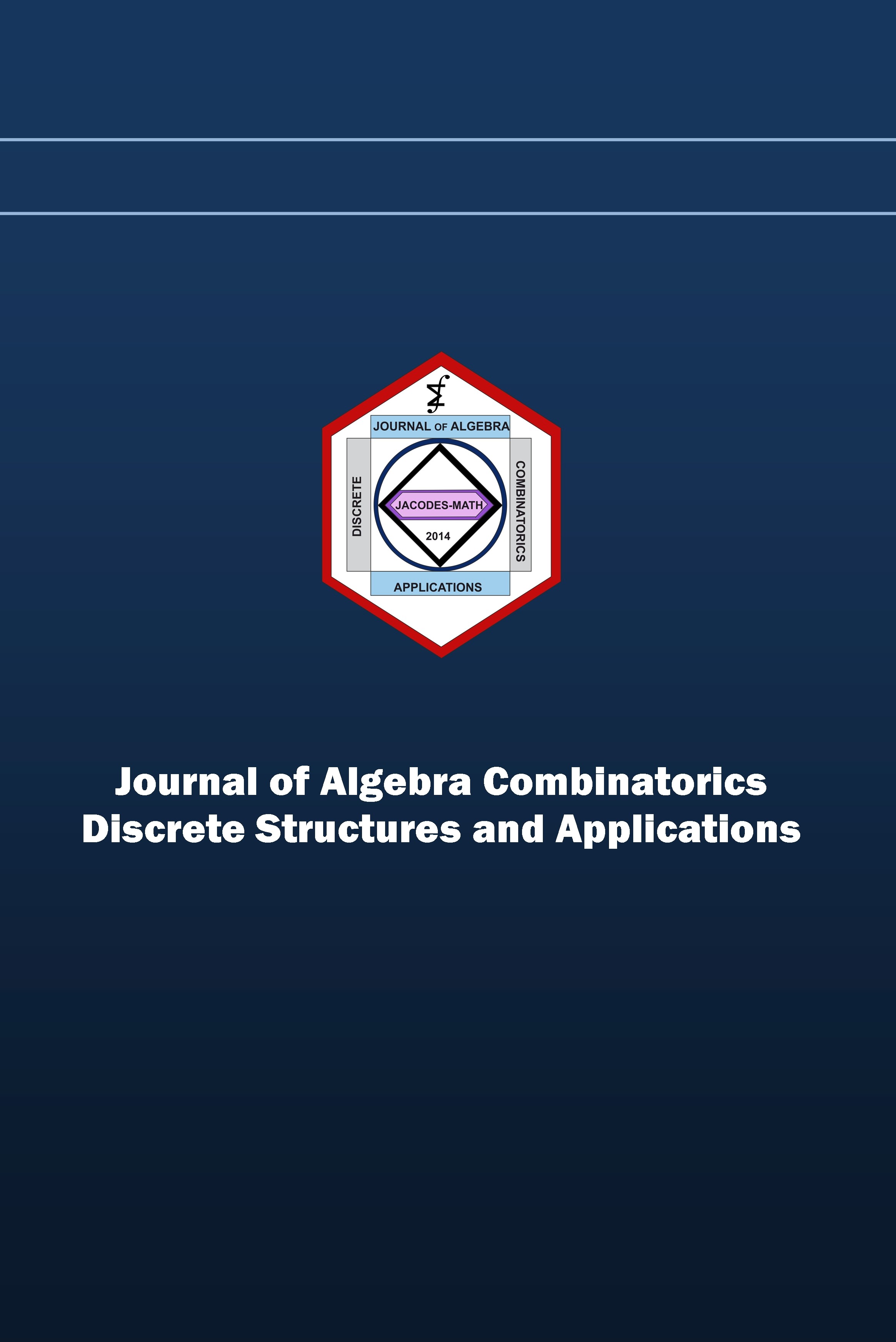A note on $GDD(1, n, n , 4;\lambda_{1},\lambda_{2})$
A note on $GDD(1, n, n , 4;\lambda_{1},\lambda_{2})$
The present note is motivated by two papers on group divisible designs (GDDs) with the same block size three but different number of groups: three and four where one group is of size $1$ and the others are of the same size $n$. Here we present some interesting constructions of GDDs with block size 4 and three groups: one of size $1$ and other two of the same size $n$. We also obtain necessary conditions for the existence of such GDDs and prove that they are sufficient in several cases. For example, we show that the necessary conditions are sufficient for the existence of a GDD$(1,n,n,4;\lambda_1,\lambda_2)$ for $n\equiv0,1,4,5,8,9\pmod{12}$ when $\lambda_1\ge \lambda_2$.
___
- [1] C. J. Colbourn, D. G. Hoffman, R. Rees, A new class of group divisible designs with block size three, J. Combin. Theory Ser. A 59(1) (1992) 73–89.
- [2] H. L. Fu, C. A. Rodger, Group divisible designs with two associate cases: n = 2 or m = 2, J. Combin. Theory Ser. A 83(1) (1998) 94–117.
- [3] H. L. Fu, C. A. Rodger, D. G. Sarvate, The existence of group divisible designs with first and second associates having block size three, Ars Combin. 54 (2000) 33–50.
- [4] H. Hanani, Balanced incomplete block designs and related designs, Discrete Math. 11 (1975) 225–369.
- [5] W. Lapchinda, N. Punnim, N. Pabhapote, GDDs with two associate classes with three groups of sizes 1, n and n, Australas. J. Combin. 58(2) (2014) 292–303.
- [6] C. C. Lindner, C. A. Rodger, Design theory, 2nd Edition, Chapman & Hall/CRC, New York (2008).
- [7] N. Pabhapote, Group divisible designs with two associate classes and with two unequal groups, Int. J. Pure Appl. Math. 81(1) (2012) 191–198.
- [8] N. Pabhapote, N. Punim, Group divisible designs with two associate classes and $\lambda_2=1$, Int. J. Math. Sci. (2011) 1–10.
- [9] A. Sakda, C. Uiyyasathian, Group divisible designs GDD$(n,n,n,1;\lambda_1,\lambda_2)$, Australas. J. Comb. 69(1) (2017) 18–28.
- Başlangıç: 2015
- Yayıncı: İrfan ŞİAP
Sayıdaki Diğer Makaleler
The bicyclic semigroup as the quotient inverse semigroup by any gauge inverse submonoid
A note on $GDD(1, n, n , 4;\lambda_{1},\lambda_{2})$
Dinesh G. SARVATE, Dinkayehu M. WOLDEMARİAM
On the isomorphism of unitary subgroups of noncommutative group algebras
On the generation of alpha graphs
A new formula for the minimum distance of an expander code
